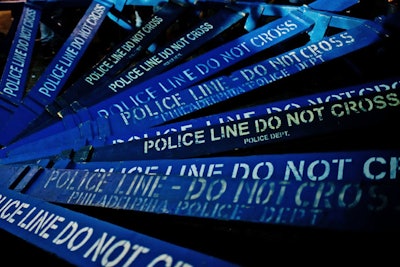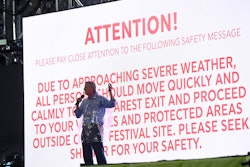
As people begin to recover from tragedy following the Boston Marathon, one refrain seems to echo: longstanding, proud, celebratory events such as this will continue undaunted in the face of terrorism.
Of course, event organizers will remain vigilant. Here are six ways to make sure your event is prepared for unexpected emergencies.
1. Assume the potential for vulnerability
Nobody wants to think of an event as a potential target, but everyone should consider the possibility. "The first thing is to realize that no venue is not considered a target," says 360 Group International director of operations Grant Murray. "Terrorists, whether domestic or international, are always looking for new and innovative ways of doing things. A few days ago, not many people would have said that the Boston Marathon, which is a huge event, would have been a target. So it starts with realizing that you are susceptible. A lot of people operate under the assumption that they don't need security, or this or that, because that's just superfluous spending. But [safety] starts with what's called a security mindset."
2. Keep guests well-informed about entry and exit points
"The Boston Marathon bombing reminded us that whenever something surprises a crowd, that crowd will start to move, and crowds move fast. Even pleasantly excited crowds, like the ones at soccer games in Europe, have proven to be deadly. The stampeding crowds can trample on top of fallen people, and even crush those at the front of the crowd," says Draken Security director of public safety Peter Steeves, who emphasized the importance of exit information to the safety of attendees and guests. People will be safer if they head toward less-obvious escape routes, so make sure all attendees know the various options available to them, he says.
3. Be first-aid ready
Larger events are likely to have medics on site to provide first aid. A security firm is also likely trained to provide it. And as a third layer of readiness, you can also prepare yourself and your team to provide aid, and thus support the pros, by getting basic training ahead of your event.
"CPR is not rocket science. It's something that you can pick up a certification for in a day," says Murray. He recommends training the people on your staff who perform well under pressure, who are experienced in the event profession, and who are fit enough to practice the life-saving task. "CPR is extremely exhausting physically. You go until you cannot go anymore," he says.
4. Know the relevant agencies and nearby services—and don't be afraid to make the call
Ahead of your event, make sure you have knowledge of and contacts for all of the appropriate agencies and services that you could call upon in the event of an emergency.
Murray suggests knowing where the closest police station and trauma center are, for instance. "That should be something that's part of your pre-event planning."
During the event, trust your gut as to when to call upon them—understanding that it's OK to use those agencies as a resource. "Go with your gut instinct, but err on the side of caution. If there's any question in your head, don't be afraid to call the police and the fire department," says Murray, who previously spent about a decade working in the federal government. "I've called in several bomb threats. I've shut down J.F.K. And I was thanked every time by the people who showed up."
When you do have to call upon a city agency like police or fire, defer to the people who show up. "This sounds intuitive, but be cooperative when working with other agencies. Turf battles can waste valuable time. If lives need to saved, they're the people who are going to be in charge and making the decisions."
Marine Corps Marathon public relations coordinator Tami Faram, who was in Boston Monday observing the race, agrees that the right agencies should serve as partners whenever necessary—as in the case of her event. "All the planning and preparation that goes into any kind of fencing or things we need to do in certain areas, [checking] bags, whatever we do, is done with law enforcement," she says.
5. Know the limitations of physical barriers
With the exception of certain kinds of barriers, most physical setups cannot stop cars or other potential sources of harm to an event area. For this reason, they cannot substitute for well-informed, well-trained security professionals on hand.
"Have your people be aware of people's behavior. There are certain countries out there who basically perform their national security based on how people are acting: what they're carrying, what they're wearing. If it's 90 degrees, and somebody has a long black trench coat on, that's an immediate red flag. Be aware of what's in people's hands. There's nothing better than a well-trained professional to do that," Murray says.
6. Keep your eye on the big picture
Several security professionals describe seeing a concerning lack of safety consideration versus other details in the preparation period ahead of an event.
"Nearly every time I show up to an event, I ask three questions: Where is the lost and found going to be? Where is your first-aid kit? And where are the fire extinguishers?" Steeves says. "Usually there is no lost and found until I ask. Sometimes those lost items are actually confused children, and it's important to have a central, known place to direct everyone. First-aid kits may be nearly unknown to most of the staff and are sometimes poorly maintained. Fire extinguishers are rarely in the right place. They usually belong near exits, but they're often found tucked away because they don't match the desired look for the room. Security personnel will be near the doors, and thereby able to quickly grab one, and there should never be a need to rush into a room and dig around for the fire extinguisher."
Decor and entertainment are key parts of an event, but they are merely details compared to the importance of keeping guests comfortable and safe. Keep your eye simultaneously on the bigger picture of safety and security while juggling all the other nuances essential to doing your job.



















